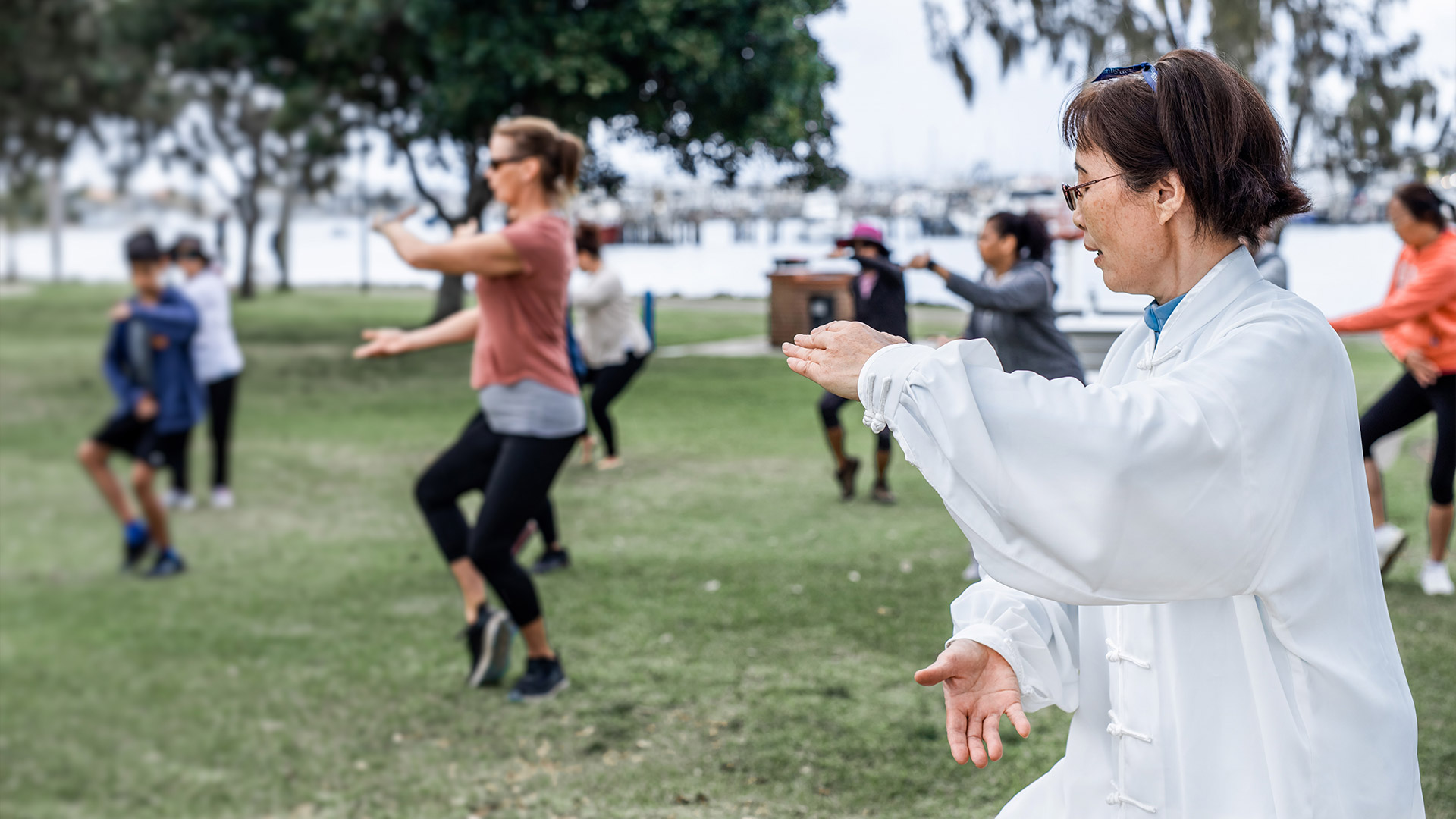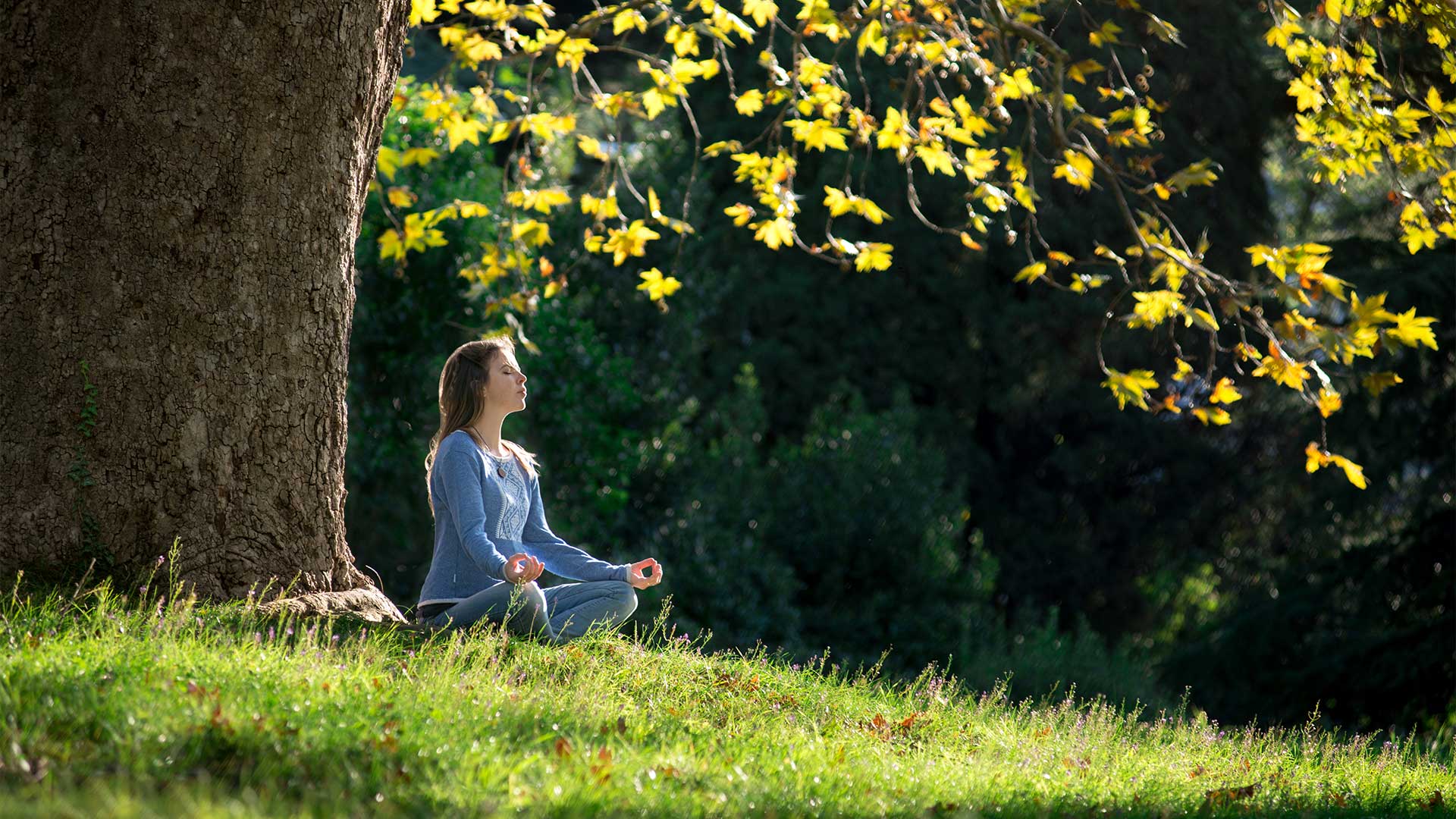The Role of Qi Gong in Anti-Aging: Balancing Energy for Better Health
Qi Gong isn’t just an exercise – it’s a holistic practice that can help you age more gracefully, both physically and mentally.

As we age, our bodies naturally go through changes. We may experience joint stiffness, fatigue, and slower recovery times. While these changes are a normal part of the aging process, there are practices that can help us slow them down and even reverse some of the effects. One such practice is Qi Gong – a centuries-old Chinese healing art that focuses on balancing energy (Qi) to improve both physical and mental health.
But how exactly can Qi Gong help combat the signs of aging and promote better health as we get older? Let’s explore the many benefits of this ancient practice and how it can help you stay vibrant and youthful, no matter your age.
What Is Qi Gong?
First things first – let’s break down what Qi Gong is. The term Qi Gong (pronounced “chee gong”) comes from the Chinese words "Qi," meaning life force or energy, and "Gong," meaning skill or work. Together, Qi Gong is the practice of cultivating, balancing, and circulating your life energy to improve health and vitality.
Qi Gong involves gentle movements, controlled breathing, and focused intention. These elements work together to stimulate the flow of Qi throughout the body, clearing blockages and enhancing energy flow. Think of it like an energy workout for your body – one that promotes flexibility, strength, relaxation, and overall well-being.
Qi Gong and Anti-Aging: The Connection
You might be wondering – what does Qi Gong have to do with aging? Well, in traditional Chinese medicine, aging is often seen as a result of imbalanced or stagnant Qi. As we get older, our energy tends to become depleted or blocked, which can lead to physical ailments, mental fog, and emotional imbalances.
Qi Gong works by addressing this imbalance and recharging the body’s energy, which can help slow down the aging process and improve health. By practicing Qi Gong regularly, you can increase your energy levels, reduce stress, and enhance the flow of Qi throughout your body, leading to a more vibrant, youthful appearance and better overall health.
How Qi Gong Helps with Physical Aging
1. Improving Flexibility and Mobility
One of the biggest complaints as we age is feeling stiff or lacking flexibility. Whether it’s trouble bending over, reaching up, or just feeling tight after sitting for long periods, Qi Gong can help. The slow, flowing movements of Qi Gong help to stretch the muscles, open the joints, and promote better flexibility.
Qi Gong also encourages the circulation of blood and Qi to the muscles and joints, which can help alleviate stiffness and improve overall mobility. Regular practice helps keep the body loose and flexible, reducing the risk of falls and improving your ability to move freely throughout your day.
Real Example: George Leonard, a martial artist and Qi Gong practitioner, spoke about how his practice of Qi Gong helped him maintain mobility and agility even in his later years. He credited it with helping him stay physically fit and active, which allowed him to continue practicing martial arts well into his 70s.
2. Boosting Energy and Vitality
As we age, it’s normal to feel a little more tired than we used to. But constant fatigue can also be a sign that your Qi is stagnant or depleted. Qi Gong helps recharge your energy by improving the flow of Qi throughout the body. The practice works to invigorate your internal systems, enhance circulation, and give you a natural energy boost – without the need for caffeine or stimulants.
Real Example: Dr. Oz, the famous TV doctor, has praised Qi Gong for its ability to boost energy levels and improve overall health. He often recommends Qi Gong as a natural remedy for fatigue and low energy, especially for older adults looking to maintain vitality.
3. Strengthening the Body and Immune System
Qi Gong is also great for strengthening the muscles and improving overall physical strength. The gentle movements involve the entire body, which helps improve muscle tone, posture, and balance. Additionally, Qi Gong has been shown to boost the immune system by stimulating the production of white blood cells and improving circulation.
By strengthening the body and improving circulation, Qi Gong can help protect against age-related conditions like osteoporosis, arthritis, and heart disease. It helps the body stay strong and resilient, even as it ages.
Real Example: Dr. Yang Jwing-Ming, a renowned expert in Qi Gong, has taught that the practice can help older adults maintain strong bones and joints, preventing conditions like osteoporosis. He often works with seniors to improve their balance, flexibility, and overall vitality.
How Qi Gong Supports Mental and Emotional Health
Aging isn’t just about our bodies – it’s also about how we feel mentally and emotionally. Stress, anxiety, and depression are common as we age, especially when we start to notice physical changes. Thankfully, Qi Gong isn’t just good for your body – it’s great for your mind and emotions too.
1. Reducing Stress and Anxiety
One of the most well-known benefits of Qi Gong is its ability to reduce stress. The deep, focused breathing and slow movements help activate the parasympathetic nervous system, which is responsible for calming the body and reducing the stress response. Practicing Qi Gong regularly helps lower cortisol levels (the stress hormone) and promotes a feeling of calm and relaxation.
By reducing stress, Qi Gong helps prevent emotional imbalances that can contribute to anxiety, depression, and other mental health issues. It’s like giving your mind a chance to rest and recharge, which is especially important as we age.
Real Example: Hugh Jackman, the actor known for his role as Wolverine, practices Qi Gong to manage stress and maintain a calm, balanced mindset. He’s spoken about how Qi Gong helps him center himself and stay emotionally grounded, even with the pressures of his demanding career.
2. Improving Mental Clarity and Focus
As we get older, mental clarity can sometimes fade. Whether it’s forgetting where you put your keys or having trouble concentrating, these cognitive slips can be frustrating. Qi Gong helps improve mental focus by calming the mind and improving circulation to the brain. It also promotes better oxygen flow, which helps nourish brain cells and improve cognitive function.
By practicing Qi Gong regularly, you can improve your mental sharpness, boost memory, and stay mentally alert – all important aspects of healthy aging.
Real Example: A study published in the *Journal of Alzheimer's Disease* found that seniors who practiced Qi Gong regularly showed improved cognitive function and reduced signs of mental decline. Participants in the study reported feeling more mentally clear and focused after just a few weeks of practice.
3. Promoting Emotional Balance and Well-Being
Emotional health is a key part of aging well. Qi Gong helps promote emotional balance by calming the mind and allowing for better emotional processing. It encourages a sense of peace and serenity, which can help prevent mood swings and emotional distress.
By practicing Qi Gong, you can cultivate a sense of inner peace and emotional stability, which contributes to a healthier, more positive outlook on life.
Getting Started with Qi Gong
If you’re ready to give Qi Gong a try, getting started is easy! You don’t need any special equipment or experience – just a willingness to learn and a desire to feel better.
1. Find a Qi Gong Class: Look for a local instructor or community center offering Qi Gong classes. Many yoga studios also offer Qi Gong sessions, so check your local listings.
2. Practice at Home: There are plenty of online tutorials and videos to guide you through basic Qi Gong movements. Start with simple exercises like The Eight Pieces of Brocade or Standing Like a Tree, and gradually work your way up to more advanced forms.
3. Start Slow: Qi Gong is all about slow, deliberate movements. Don’t rush! Focus on your breathing and the flow of energy in your body.
4. Be Consistent: Like any practice, consistency is key. Aim to practice Qi Gong for at least 15–30 minutes a day, and you’ll start to feel the benefits.
Qi Gong isn’t just an exercise – it’s a holistic practice that can help you age more gracefully, both physically and mentally. By improving flexibility, boosting energy, reducing stress, and enhancing mental clarity, Qi Gong supports overall well-being and helps you feel more youthful, inside and out. So, whether you’re dealing with joint pain, stress, or mental fog, Qi Gong can be a great addition to your anti-aging toolkit.
Give it a try and see how it can help you feel stronger, calmer, and more balanced as you age. Who says getting older can’t be graceful, energizing, and even a little fun?


